Dossier
Society's view of farm animal husbandry
Inken Christoph-Schulz and Marie von Meyer-Höfer | 08.06.2022
The Thünen Institute investigates society's expectations of agricultural animal husbandry in all its diversity and depth. Existing criticism and conflicting goals can thus be analysed in a differentiated manner and further development of animal husbandry can be accompanied scientifically.
What are the reasons for the social criticism of animal husbandry? How do citizens perceive animal husbandry today and what do they expect from it? Which husbandry conditions do they consider to be particularly animal-friendly? What priorities do citizens set in their assessment? How do citizens react to conflicting goals in animal husbandry? Solutions to these questions can be found in improved communication, but also in an adjustment of animal husbandry on farms, in the transport of animals and their slaughter, or in a change in consumer behaviour.
Despite many positive developments and efforts by individual farmers in the agricultural husbandry of animals, some points of criticism remain virtually unchanged for years. This is what our research results show.
As early as 2012, respondents stated that a lack of space for the individual animal was a major criticism of the housing conditions for fattening pigs. Already in 2012, many respondents attributed behavioural disorders of animals and a high use of medication in animal husbandry to a lack of space. The most important concerns of the respondents regarding pig husbandry then, as now, are more space and freedom of movement, manipulable material for the pigs, outdoor access and the renunciation of the prophylactic administration of antibiotics. "Too little space" and "too little naturalness" are still often general criticisms of intensive animal husbandry by citizens today - regardless of the type.
The participants of the survey were divided into three groups based on their expressed opinion:
- The opponents (28 percent) of modern pig farming are more often female and have a medium to good knowledge of agriculture. They see the main responsibility for animal-friendly husbandry primarily with consumers (too much price orientation and too much consumption) and with the state (too few regulations and insufficient control), while they rarely see farmers or processing companies as being responsible.
- The group of moderates (35 per cent), whose members are often male and have little knowledge of the topic, is different: They see the main responsibility primarily with the animal husbandry or processing companies (too strong profit orientation).
- The group of tolerators (37 per cent) - often male and rather ignorant - holds farmers primarily responsible for the undesirable developments in animal husbandry, and consumers, the state and processing companies less so.
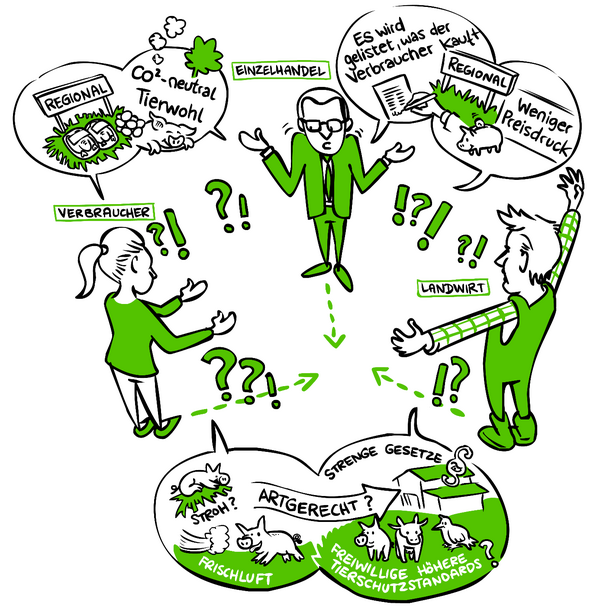
Since 2015, we have been working in the SocialLab project together with the Universities of Bonn, Düsseldorf and Göttingen, the Technical University of Munich, the University of Applied Sciences Südwestfalen and INSTET (Private Research and Consulting Institute for Applied Ethics and Animal Welfare) on the big questions surrounding society's view of agricultural animal husbandry.
The starting point for this project was that agricultural animal husbandry was becoming more and more the focus of public attention and animal husbandry enterprises were increasingly criticised.
Each of the three main actors does not seem to be really satisfied with their situation.
Farmers:
- produce mostly simply according to the legal requirements without implementing higher and more elaborate standards for animal welfare or organic labels.
- often see little scope for changing the way they keep their animals and for introducing higher animal welfare standards in a system of long depreciation periods and complicated approval procedures for their stables.
- do not want to or cannot take the risk of changing animal husbandry, as there is no certainty that higher-quality products will also be bought at a higher, cost-covering price.
- often feel unjustly pilloried for their animal husbandry.
Consumers:
- currently mostly buy the cheap products that have been produced on the basis of the legal standards.
- still dream of animal husbandry that corresponds more to a romantic image than to reality.
- are often hardly or not at all able to judge what agriculture and especially animal husbandry really looks like today, because only a few have the opportunity to gain realistic insights.
- are often confronted with the most varied and sometimes very contradictory information on agricultural animal husbandry. Sometimes it is presented too positively, sometimes too negatively. But how is the consumer to judge which information is the right one?
- are confronted with various conflicting goals when shopping: The most obvious one is the desire for more animal welfare at a low price; others are, for example, the question of what is judged to be more worthy of protection - the environment or animal welfare?
The trade:
- is primarily interested in sales figures. And from these, the preferences of the customers are quickly inferred. In the present situation, this means that primarily the products of the legal standard are listed and sometimes sold at an extremely low price.
- naturally competes with other traders and tries to win customers through special offers, promotions and advertising.
The long-term goal, to which SocialLab would like to make a significant contribution, is thus the improvement of agricultural animal husbandry in the sense of the farm animal AND thereby the improvement of social acceptance. But all this must succeed WITHOUT "losing" the farmers.
In order to achieve this goal, an important step is for the actors to communicate more intensively with each other in order to better understand the other side or to even begin to get to know the other perspectives. For a long time, people mainly talked about each other and not with each other.
SocialLab I: The core results
In the first project, SocialLab – Society's perception of animal husbandry, important insights were already gained in discussion rounds with farmers and consumers. It was quite possible for both sides to come measurably closer in the course of a discussion if the communication was characterised by openness and mutual respect. If, on the other hand, consumers did not feel that their concerns were taken seriously or if farmers were unjustly blamed, there was no basis for rapprochement.
A second important aspect of the project work was to examine society's perception of agricultural animal husbandry. For this purpose, the six main livestock production lines (fattening pigs, sows and piglets, broilers, laying hens, dairy cows and beef cattle) were examined comparatively. With the help of an online survey, it could be shown that the keeping of broilers and laying hens are seen as particularly in need of improvement, while the keeping of dairy cows and beef cattle is criticised by significantly fewer respondents.
It was obvious at the time (2017) that the respondents lacked the possibility to understand the conditions under which the animals are kept when shopping. This shows the need for comprehensible labelling on the packaging.
In 2019, SocialLab II - Acceptance through Innovation was launched, in which the previous SocialLab research is continued and expanded. Hardly anyone is satisfied with the current state of agricultural animal husbandry. On the contrary, it can be assumed that there is a feeling of unease on probably all sides, which is likely to vary in intensity depending on the individual situation and personality. In order to find goal-oriented, balanced and ethically justifiable solutions to this problem, it is necessary to penetrate the criticism of the various social groups of the current forms and practices of agricultural animal husbandry in a more differentiated way and to better understand its numerous facets in order to be able to point out new possibilities for further development and solutions.
Objectives of SocialLab II
Differentiated investigation of the criticism of agricultural animal husbandry by different social groups (consumers, citizens, farmers, trade, NGOs). What are the main points of criticism of agricultural animal husbandry and the ongoing public and political debate?
Identify realistic ways to improve livestock farming from the point of view of the different social groups. How can the points of criticism be reduced in the long term?
Supporting the social groups in the orientation of their activities in the sense of further development of animal husbandry. Support policy-makers in designing appropriate measures. Supporting science in identifying research gaps on the topic.
Break down barriers between the different social groups in their dealings with each other.
Establishment of a monitoring system on the framework conditions that have an influence on the development of social criticism and acceptance of agricultural animal husbandry. In the long term, a longitudinal study based on SocialLab I is to be carried out.
Establishment of a discussion format on questions of the further development of agricultural animal husbandry in terms of the market economy, society and/or politics for all interested stakeholders and their different interests.
The interim results of the work packages are regularly discussed by all participating scientists of SocialLab II. Close networking ensures that there is no overlap and that the various work packages complement each other in the best possible way.
Work package 3: The SocialLab future workshop on agricultural animal husbandry
The SocialLab Future Workshop on Animal Husbandry is divided into the following phases: Entry and Critique Phase, Utopia Phase, Realisation Phase, Follow-up Phase. Participants in the future workshop are citizens and farmers, representatives of agriculture and the food industry, environmental protection and animal welfare, as well as other experts (e.g. from science, the media or politics).
The implementation and scientific monitoring of this transdisciplinary, professionally moderated multi-stakeholder discourse makes it possible to recreate social debates in the "laboratory", to observe and analyse them more closely and perhaps even to accelerate them.
Thematically, the focus is on innovations for animal husbandry with a special focus on the existing trade-offs between animal welfare, environmental, nature and climate protection. In addition, methodological, organisational and institutional questions on the conditions for the success of discourses on animal husbandry will be addressed.
Within the framework of the discussion rounds, realistic perspectives for the implementation of societal expectations regarding animal husbandry will be identified. The priority here is that the scenarios developed are socially acceptable, especially in terms of animal welfare and environmental protection, and can be implemented in a way that makes economic sense at the same time. In this way, politicians and farmers are shown possible courses of action that can be used to implement sustainable animal husbandry in Germany that is accepted by the majority.
Read more
An overview of the events and results so far can be found on the SocialLab Homepage (in German).
Read more literature
- 0
Mukhamedzyanova R, Gier NR, Berkes J, Schütz A, Christoph-Schulz IB (2021) "Landwirtschaftliche Nutztierhaltung" : Begriffsdefinition zum zentralen Untersuchungsobjekt im Projekt SocialLab². Braunschweig: Johann Heinrich von Thünen-Institut, 45 p, Thünen Working Paper 186, DOI:10.3220/WP1639647850000
- 1
Christoph-Schulz IB, Rovers AK (2020) German citizens’ perception of fattening pig husbandry - Evidence from a mixed methods approach. Agriculture 10(8):342, DOI:10.3390/agriculture10080342
- 2
Brümmer N, Petersen W, Christoph-Schulz IB (2018) Consumer acceptance of dual-purpose chickens : a mixed methods approach [online]. German J Agric Econ 67(4):234-245, zu finden in <http://www.gjae-online.de/inhaltsverzeichnisse/pages/protected/show.prl?params=recent%3D1%26type%3D2&id=943&currPage=&type=2> [zitiert am 12.11.2018]
- 3
Christoph-Schulz IB, Hartmann M, Kenning P, Luy J, Mergenthaler M, Reisch L, Roosen J, Spiller A (2018) SocialLab - Nutztierhaltung im Spiegel der Gesellschaft : erste Ergebnisse und Implikationen. J Consumer Protect Food Safety 13(2):145-150, DOI:10.1007/s00003-017-1144-7
- 4
Rovers AK, Mergenthaler M, Wildraut C, Sonntag WI, Meyer-Höfer M von, Christoph-Schulz IB (2017) Roundtable on hotspots in livestock production - A mixed-methods-approach for a better understanding of farmers’ and consumers’ views : contribution presented at the XV EAAE Congress, "Towards Sustainable Agri-food Systems: Balancing Between Markets and Society" August 29th - September 1st, 2017 Parma, Italy. 13 p
- 5
Weible D, Christoph-Schulz IB, Salamon P, Zander K (2016) Citizens' perception of modern pig production in Germany: a mixed-method research approach. Brit Food J 118(8):2014-2032, DOI:10.1108/BFJ-12-2015-0458
- 6
Zander K, Isermeyer F, Bürgelt D, Christoph-Schulz IB, Salamon P, Weible D (2013) Erwartungen der Gesellschaft an die Landwirtschaft. Münster: Stiftung Westfälische Landwirtschaft, 117 p

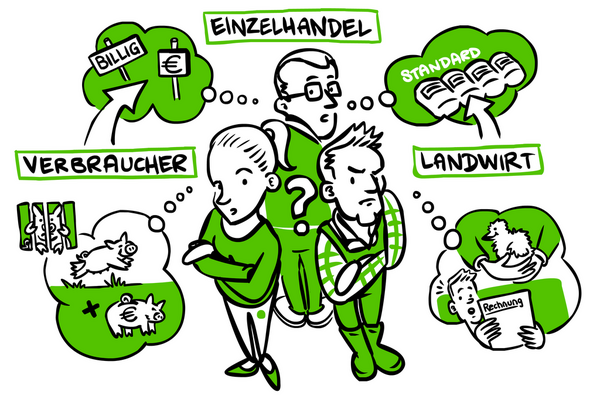
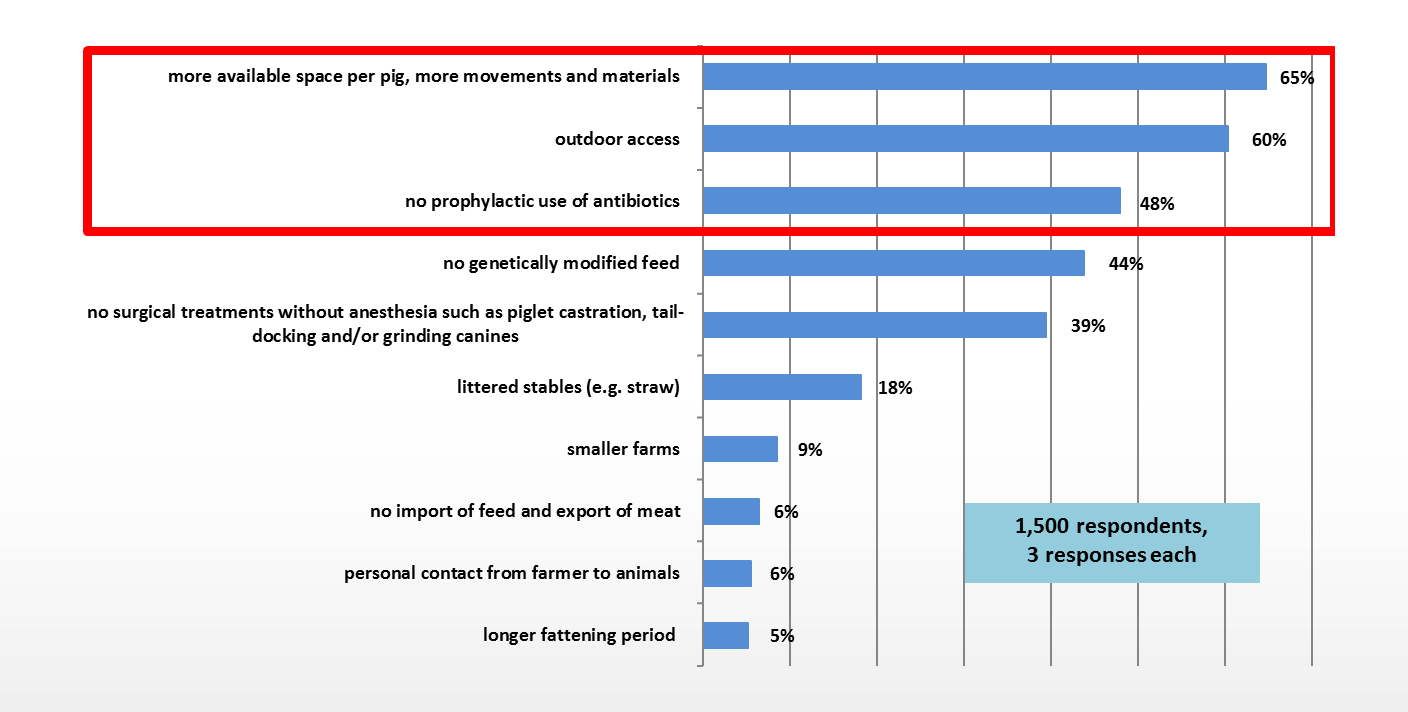
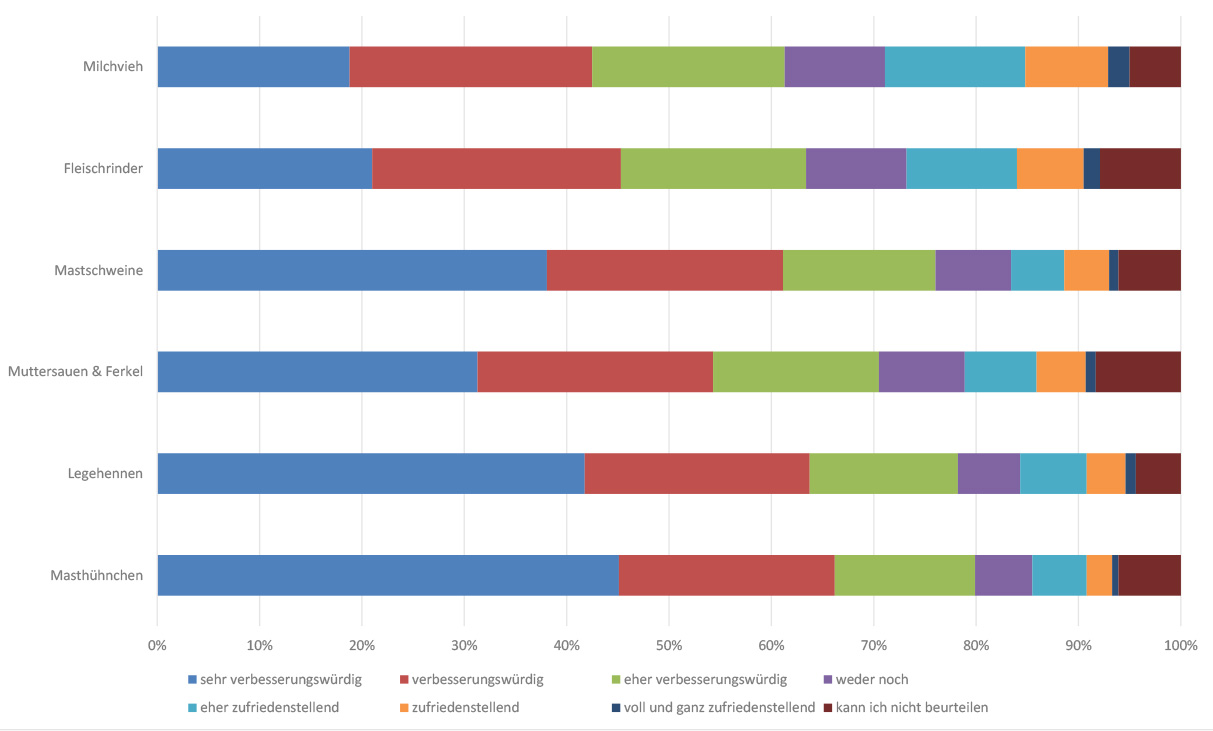
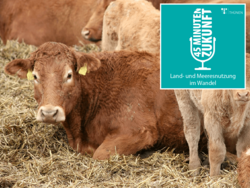
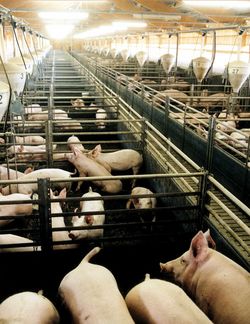
![[Translate to English:] Logo des Bundesministerium für Ernährung und Landwirtschaft](/media/allgemein/logos/BMEL_Logo.svg)